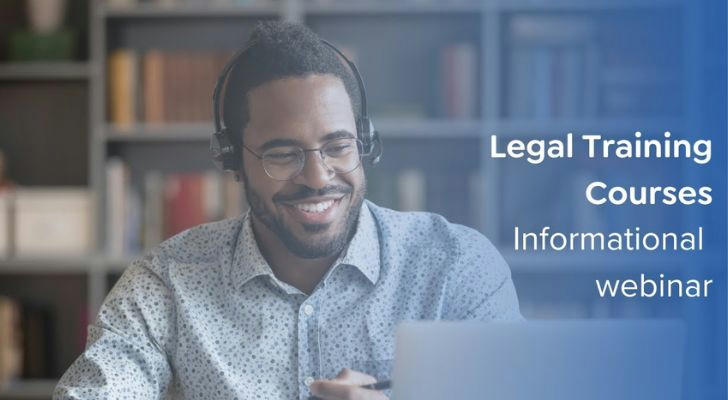Legal Certification Courses: Empower Yourself with Practical Legal Knowledge
Understanding the law is essential for protecting your rights, making informed decisions, and ensuring fairness in personal and professional matters.
For middle-aged and older women, legal knowledge is especially valuable in areas like family law, inheritance rights, consumer protection, and elder law. Legal certification courses provide structured education in these areas, equipping individuals with the skills needed to navigate legal situations confidently.
Whether you want to understand marriage and divorce laws, property rights, contracts, or workplace protections, a legal certification course can provide essential guidance.

What Is a Legal Certification Course?
A legal certification course is a structured educational program that provides foundational legal knowledge in an accessible and practical way.
These courses typically cover:
✔ Basic legal principles – How laws function and impact everyday life.
✔ Common legal situations – Understanding legal matters related to family, employment, property, and consumer rights.
✔ Practical applications – Developing skills to handle legal issues confidently.
Unlike law school, which prepares individuals to become lawyers, these courses focus on practical legal knowledge for everyday situations.
Why Enroll in a Legal Certification Course?
1. Protect Yourself and Your Loved Ones
Legal issues can arise unexpectedly, and understanding your rights and obligations is the best way to avoid complications. A legal certification course can help you:
- Understand family law (marriage, divorce, child custody, and inheritance).
- Recognize unfair contracts and consumer fraud.
- Learn about elder rights and estate planning.
A study by the World Justice Project found that 60% of people worldwide experience a legal issue at some point, yet many do not seek legal help due to lack of knowledge.
2. Make Informed Decisions with Confidence
Legal matters affect many aspects of daily life, from signing contracts to handling workplace disputes. A legal certification course provides the knowledge to:
- Understand employment rights and workplace protections.
- Navigate financial and real estate agreements securely.
- Resolve legal concerns efficiently without unnecessary stress.
According to the American Bar Association, legal knowledge helps individuals make better financial and personal decisions, reducing the risk of legal conflicts.
3. Develop Practical Legal Skills
A legal certification course does not require prior legal experience but provides useful, applicable knowledge in an easy-to-understand format. Many students use what they learn to:
- Support family and friends with legal questions.
- Advocate for their rights in workplaces and communities.
- Avoid common legal mistakes that could lead to financial losses.

What Topics Are Covered in Legal Certification Courses?
Most legal certification courses focus on areas of law that are relevant to personal and family life, including:
1. Introduction to Law and Legal Systems
- How laws are created and enforced.
- The difference between civil and criminal law.
- How to access legal resources and professional guidance.
2. Family and Personal Law
- Marriage, divorce, and child custody laws.
- Property division and inheritance rights.
- Legal protections for seniors, including wills and power of attorney.
Did you know? Women are disproportionately affected by legal disputes related to inheritance and family law, making this knowledge particularly valuable.
3. Consumer Protection and Contract Law
- Understanding contracts and agreements.
- Identifying fraud and unfair business practices.
- Steps to take if consumer rights are violated.
A report by the Federal Trade Commission (FTC) found that one in three consumers encounters some form of fraud or misleading business practice, highlighting the need for consumer legal education.
4. Employment Law and Workplace Rights
- Understanding fair wages, discrimination laws, and workplace protections.
- Legal rights regarding workplace disputes and wrongful termination.
- Steps to take in case of legal conflicts with employers.
According to the International Labour Organization (ILO), lack of knowledge about workplace rights is a significant factor in job insecurity, especially for women.

Who Should Take a Legal Certification Course?
Legal certification courses are designed for everyone, but they are particularly beneficial for:
✔ Individuals who want to protect their personal rights and interests.
✔ Women who want to better understand family, employment, and inheritance laws.
✔ Seniors or caregivers managing estate planning and elder care legal issues.
✔ Community leaders and volunteers looking to support others with legal concerns.
For middle-aged and older women, a legal certification course builds confidence and independence, making it easier to handle legal matters for themselves and their families.
How to Enroll in a Legal Certification Course
To gain practical legal knowledge, consider these options:
✅ Research accredited legal certification programs – Various institutions offer structured legal courses tailored to different levels of expertise.
✅ Look for legal education programs focused on practical applications – Some programs specialize in family law, consumer rights, or employment law.
✅ Choose courses that align with your specific legal interests – Whether it's inheritance law, contract law, or elder rights, select a course that fits your needs.
Final Thoughts
Legal knowledge is a powerful tool for independence and protection. It enables individuals to safeguard their rights, make informed choices, and avoid unnecessary legal complications.
For middle-aged and older women, legal certification courses provide an opportunity to gain essential skills, improve confidence, and navigate legal matters effectively.
According to the World Justice Project, legal education significantly reduces vulnerability to legal risks, helping individuals assert their rights and prevent legal exploitation.
Whether you aim to protect your personal interests, support your family, or deepen your legal understanding, a legal certification course offers valuable insights for everyday life.
💡 Understanding the law means understanding your rights. The more you know, the better you can protect yourself and those around you.
